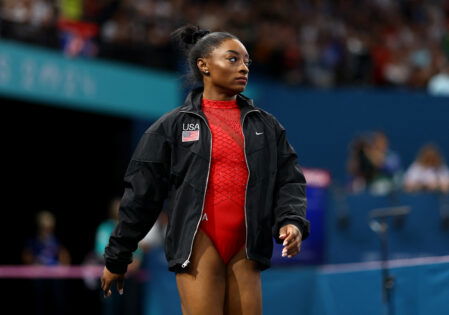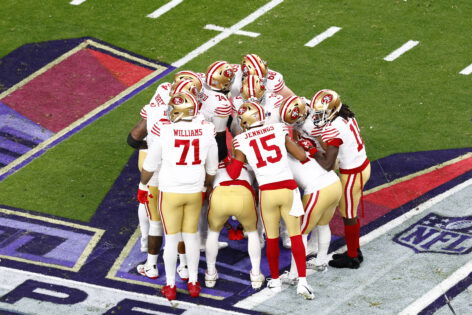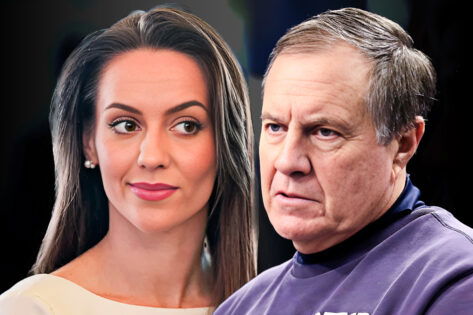On the surface, the 2024 Team USA trials offered NBC a reason to celebrate. Television audiences surged across the board, driven in part by Simone Biles’ historic third Olympic team selection. Her all-around qualifying performance drew an average of 7.6 million viewers, peaking at 8.2 million during the final rotation. That number eclipsed the COVID-delayed 2021 trials by 24 percent and underscored her enduring pull on the American imagination. Track and field, meanwhile, saw its own bump, averaging 4.5 million viewers over eight nights, up a notable 38 percent from 2021. Yet while the numbers soared, they also raised a more complicated question about long-term programming vision: How long can gymnastics continue to carry this weight?
NBC’s recent broadcast moves suggest a lopsided answer.
This week, USA Gymnastics announced a sweeping extension of its media partnership with NBC Sports through 2032, a full four years beyond the 2028 Los Angeles Olympics. NBC and Peacock will continue to showcase marquee events like the Xfinity U.S. Gymnastics Championships and the U.S. Classic. They’ll also introduce special selection shows in non-Olympic years and expand coverage leading into LA28. “We are proud to extend our partnership with NBC Sports and to expand coverage of gymnastics over the next eight years,” said USAG President Li Li Leung.
For NBC, gymnastics remains a flagship property, shaped in recent years by the presence of icons such as Biles, Suni Lee, and Jordan Chiles. But with Biles stepping away from competition after Paris, the equation changes.
Final: Artistic gymnastics – Paris 2024 – Floor August 05 2024: Simone Biles United States of America wins silver during floor final on Day 10 of the Olympic Games, Olympische Spiele, Olympia, OS at Bercy Arena, Paris, France. Ulrik Pedersen/CSM. Credit Image: Â Ulrik Pedersen/Cal Media Paris France EDITORIAL USE ONLY Copyright: xx ZUMA-20240805_zma_c04_122.jpg UlrikxPedersenx csmphotothree277575
The network’s renewed agreement with USA Track & Field, though notable, offers a much shorter horizon. NBC will carry USATF’s premier indoor and outdoor meets, including the national championships and headline invitationals like the Millrose Games and Prefontaine Classic, through 2028. Peacock will also stream digital-only content to bolster year-round visibility.
Still, this four-year window is considerably narrower than the gymnastics extension, even though track and field appears poised for a generational leap. With multiple marketable athletes emerging across sprints, distance, and field events, and new ventures such as Alexis Ohanian’s Athlos gaining traction, the sport is no longer short on narrative or star power.
This asymmetry in contract length prompts scrutiny. Simone Biles may have anchored a ratings boost in 2024, but gymnastics without her presents a very different proposition. Track and field, conversely, is less reliant on a single figure and more buoyed by a deepening roster of breakout talent. The strategic choice to tie gymnastics down until 2032, while assigning track only a four-year runway, speaks more to historical momentum than future logic. As the road to LA28 unfolds, that calculus may prove shortsighted.
NBCUniversal, which controls US Olympic media rights through 2036, has expanded its Olympic footprint with recent renewals across swimming, gymnastics, and athletics. But the lengths of those deals matter. The current climate suggests that if one sport needed the longer leash, it may not have been the one with a retiring headliner.
Historically speaking, the summer of 2016 delivered more than athletic excellence. It reminded NBC why its long-standing association with track and field once served as the cornerstone of Olympic television.
How Usain Bolt’s lightning finish carried NBC to record-breaking heights
On a Sunday evening in August, nearly 35 million viewers tuned in to watch Usain Bolt seize his third consecutive Olympic title in the 100 meters, a moment that would become the high-water mark of NBC’s Rio Games broadcast. Between 9:15 and 9:30 p.m. Eastern, when Bolt crossed the finish line, national ratings data confirmed that the network achieved its largest audience of the Games, drawing 34.9 million viewers in that quarter-hour span alone.
RIO DE JANEIRO, BRAZIL – AUGUST 17: Usain Bolt of Jamaica reacts after competing in the Men’s 200m Semifinals on Day 12 of the Rio 2016 Olympic Games at the Olympic Stadium on August 17, 2016 in Rio de Janeiro, Brazil. (Photo by Shaun Botterill/Getty Images)
NBC’s alignment with track during the Bolt era was not incidental. It was a calculated and mutually beneficial arrangement that transformed the men’s 100 meters into appointment viewing across the United States. That Sunday’s coverage, which also featured key moments from Simone Biles, Michael Phelps, and Allyson Felix, ultimately averaged 28.1 million viewers across platforms. Yet it was Bolt’s brief, emphatic race that captured and held the nation’s attention. The broadcast’s peak viewership corresponded precisely with his appearance on the track, a signal that audiences, even in a crowded media environment, still recognized and responded to the significance of a singular athletic presence.
This was more than a ratings victory. For NBC, the numbers affirmed that its investment in track and field, specifically during a period when the sport was anchored by a compelling central figure, had paid off in full. The data told a clear story: During Bolt’s reign, track did not merely support NBC’s Olympic coverage. It got propelled.
The post Simone Biles Retirement Rumors Could Dent NBC’s Recent Business Decisions – Report appeared first on EssentiallySports.



